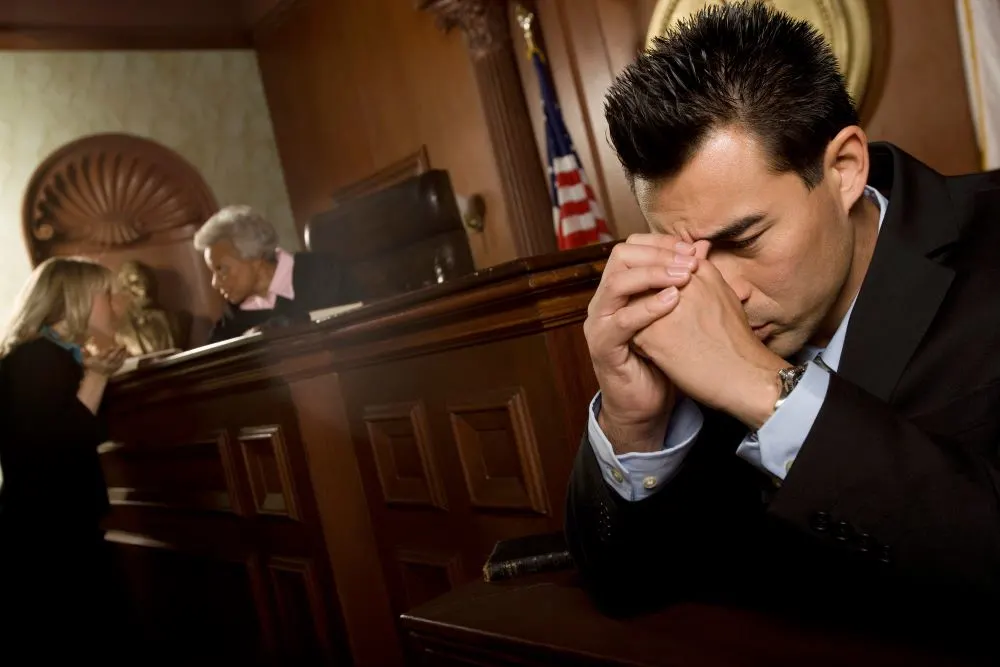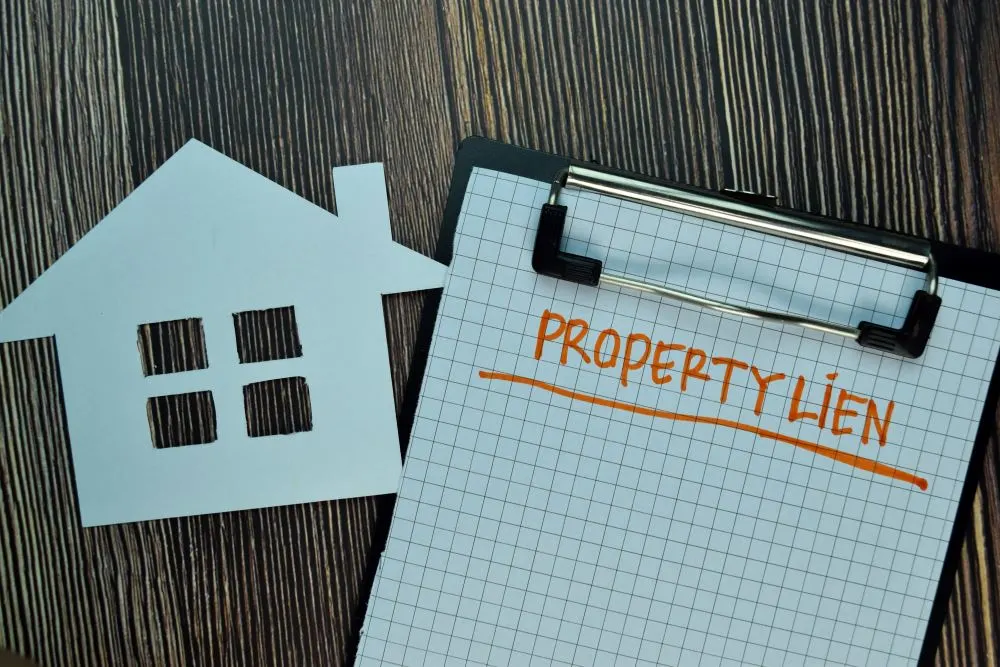For an organization like a Homeowners Association (HOA) to thrive, there need to be rules and repercussions for breaking these rules. This is because the association comprises independent individuals with unique personalities who would make different decisions if left to their own devices. Case in point, you are likely reading this article because you disagree with another member of the HOA.
The HOA has governing documents in place that determine how the association is run. The documents also contain the acceptable repercussions for various infringements. In this post I take you through the reasons why you cannot ignore an HOA as well as the most common ways the HOA deals with homeowners that violate the association’s laws.

If an HOA is implementing a rule or repercussion in accordance with HOA by-laws, then they can’t be ignored; the law gives them power to enforce these. Consequences of ignoring an HOA: fines, having to pull down or re-do work, suspension from communal areas, scrutiny of future actions, lawsuits, and liens.
You Are Contractually Bound to Listen to HOA
Once you buy a property in an HOA community, you automatically become a member of the association and by extension, give them the authority to exercise control over certain aspects of your property.
The only exception is if the HOA is created retroactively. In this situation, homeowners who purchased their property before the HOA is created cannot be mandated to join the association.
HOA’s are legal entities governed by legally binding documents like the by-laws and the Declaration of Covenants, Conditions and Restrictions (CC&Rs). Thus, by virtue of your involvement with the association, you become contractually bound to obey the community’s laws and pay their fees.
That’s why it is important to make inquiries concerning the system in place before getting a house. If there is an HOA, you’d want to know their laws, especially those that affect you directly. For instance, if you own five pets and the association allows a maximum of three pets, you might want to reconsider getting the property.
Repercussions of Ignoring HOA
As an association, the HOA has its methods of ensuring the compliance of its members. These methods comprise punishments, or rather consequences, of flouting the rules of the organization.
The first recourse for the HOA is to issue erring homeowners warnings or a notification of violation. Should the member continuously ignore the warnings, the association then proceeds to take disciplinary measures.
Fines
HOAs impose fines on various rule violations in an attempt to gain the compliance of residents and maintain harmony. Some infringements might only attract light fines while others could result in heavier monetary punishments.
The specifics of the process can vary from one state to another. While some states require a hearing before any fine can be imposed on an HOA member, others do not. Factors that affect the price of fines include:

- The average financial capacity of the membership. Placing low fines on high-income neighborhoods would do nothing to deter them from violating the rules while imposing high fines on average-income communities might come across as unfair.
- The severity of the violation. All violations wouldn’t attract the same fine. The amount would vary based on the grievousness of the offense
- The consistency of the offense. If the person is an incessant violator, the fine might be more than that of a homeowner who isn’t known to flout the rules.
Information about fines is usually contained in the HOA’s CC&Rs or any other governing document.
Pull Down/Re-Do Work
One of the areas the CC&Rs cover in most communities is the exterior appearance of properties in the neighborhood. Thus, if the association has specific requirements regarding issues like fences, paint color, and the appearance of lawns, you would have to comply with their dictates. That way, you avoid wasting your time and resources on projects that the community might find unacceptable.
The HOA sometimes does this to ensure uniformity in the appearance of the properties in the neighborhood. Therefore, if you go against the approved model, you might have to rework your project to suit the approved standards.

For, instance, if the HOA’s laws state that houses have a white 7” picket fence and you erect a 9” chain link fence around your property, the association might demand that you pull down the fence and erect a picket fence in its stead.
In some situations, the HOA might have to approve your fence before you can proceed with construction, in which case your chainlink fence will never come to fruition.
Bear in mind that the uniform appearance of houses in HOA communities increases property value. Thus, the laws do not only improve the aesthetic appearance of the neighborhood but the market value as well. This is something that you benefit from as well.
Another example is a window AC unit. These are often an effective cooling solution in a house without central AC, but the visual and noise-related implications of the units mean that they are often banned.
If you went ahead and installed one without permission or after being expressly denied, then you will be issued with a fine, but you will have to take out your expensive unit and just hope that the store will take it back. Otherwise, you’re going to have an expensive space-taker sitting in your garage.
Suspended From Communal Areas
In some situations, the HOA might restrict a homeowner’s access to certain communal facilities pending amendment of whatever infraction was made.
Some of the facilities the HOA can restrict resident’s access to include:
- Gym
- Swimming pool
- Clubhouse
- Park

In general, you are suspended from these facilities when you break rules associated with them. For example, if you sneak into the swimming pool at night when it is closed, subsequent access can be denied. Or if you throw a raging party in the clubhouse, then you will likely be suspended from using it again (in this case, you might also be fined).
In most HOAs, the suspension doesn’t only apply to the homeowner but also to tenants and guests as well.
Some state laws demand that a warning be delivered to the offending party before suspensions are put into effect. There are also state laws that prevent the HOA’s restrictions from affecting residents’ access or exit from their property. There are also laws against HOA restricting a homeowner’s access to parking.
Additionally, the association could suspend a homeowner’s right to partake in electoral proceedings.
Drawing Attention to Yourself
By violating the HOA’s dictates, you automatically put yourself under the scrutiny of the board and in some situations the entire membership. For instance, if your infringement is discussed during a meeting, everyone present would be aware, and, depending on the violation, this could affect your image in the community.
If you’re new in the neighborhood, you wouldn’t want the first incident that is attached to your name to be one relating to a disregard of the association’s laws.

Some homeowners are extremely fanatical about the association’s rules, especially those that have to do with the appearance of the community. So, they might become hostile or even rude to you if you’re known as a violator. You don’t have to accept rude behavior from other members, but you also shouldn’t incite it by being a bad neighbor.
By attracting this attention to yourself and by extension your property, you make it easier for the association to spot other flaws or violations, no matter how little, and proceed to call you out on them.
You Could Be Sued
As a legal entity the HOA can sue members for violating rules. However, the HOA might not be able to send residents to court for every violation. Minor infringements will likely not stand in court.
For the most part, HOAs sue homeowners for violations of any of its legally binding documents. That’s why it is imperative for residents to own copies of the organization’s governing documents. If you’re aware of the community’s laws and the punishments they might attract, you would be less likely to violate the rules.
But if you unwittingly violate the rule, you’d be aware of what is permissible by the association’s laws so that you know when the HOA board is overstepping its authority and implementing unenforceable HOA rules.

Another advantage of reading the governing documents of the association is that it informs you of your right as a homeowner.
Legal actions are usually the last resort of most HOAs. Associations only file a lawsuit against a homeowner when every other means of resolving the issue internally proves futile.
Some states even require that the HOA attempts to resolve the issue through arbitration or mediation before proceeding to file a civil suit.
HOA Can Put Lien Against Property
The ability of the HOA to place liens on a property is dependent on state laws. Some states have specific requirements for the placement of liens on residents’ property.
The major reason HOAs place liens on a house is a homeowner’s negligence to pay dues and assessments, especially for a prolonged period. Before the association places a lien on a house, they must have sent warning letters and might have even fined the homeowner, and they can only proceed to file a lien when the member doesn’t cooperate.
If the HOA places a lien on your property and you still do not pay the amount you owe them, whenever you sell the property, the association would receive the amount owed them from the proceeds of the sale.
Once a lien has been taken on a property, the HOA could decide to foreclose on the property, forcing the sale of the house.
Most states do not permit lien placements on the properties of residents that are remiss in paying their fines.
Some HOAs in line with their Declarations and relevant state laws could place interests on late payments.

HOA Has to Follow Correct Procedure
State laws as well as the governing documents of HOAs determine how the organization operates. In most cases, there are phases to the association’s disciplinary actions. The HOA cannot file a lawsuit or place a lien on a resident’s property out of the blue.
Before any issue can be escalated to that level, the offending homeowner must first be notified of his/her violation(s). Some states even require that the offending party be granted a hearing before the HOA can fine them.
For instance, in Florida, the association needs to issue offending homeowners a minimum of 14 days’ notice before the issuance of a fine. The member is also allowed a right to a hearing in front of a volunteer committee.
The association cannot go against state laws while disciplining a member. Likewise, their actions must be in line with the governing documents of the association.
If internal disciplinary actions like warnings, suspension of certain privileges, and fines prove abortive, the association can proceed to take legal actions against the offending owner.
Ways to Legally Annoy HOA
If you live in a community with an overbearing HOA and desire to push the buttons of the board without violating any association rules here are some of the things you can do:
- You could constantly demand that board members clarify the contents of the governing documents that appear vague or aren’t properly articulated. Your curiosity might seem innocent, but it would undoubtedly test the patience of the members of the board.
- You could ask for copies of the association’s financial statement. The board isn’t legally bound to provide members with the association’s account statements. However, if you make a written request, the board is obliged to make them available to you.
- Wait until the last moment to carry out required tasks. This way, you do not violate the rules, but it could cause board members to get antsy.
- Be watchful and point out whenever board members break the rules themselves.
- If there are no laws against it (which there are not likely to be), display religious and political symbols in front of your house.
Before you take any of the above steps, you need to acquaint yourself with the governing documents of the association. This implies that you keep abreast of changes (no matter how little) to the existing document.
This informs you of what is applicable in various situations as well as the limit of the HOA’s authority. That way, you know your right and if the board attempts to drill you on issues that the association’s laws don’t give them authority over, you can defend yourself with proof to back up your claim.
Sources
https://www.hoamanagement.com/unenforceable-hoa-rules/
https://cedarmanagementgroup.com/hoa-board-vs-hoa-management/
https://www.alllaw.com/articles/nolo/foreclosure/dont-pay-hoa.html
